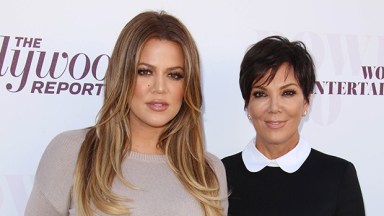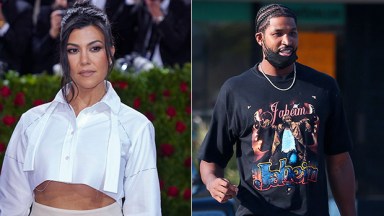“The end of the end,” Storage of The usa analyst Jessica Reif Ehrlich referred to as the carriage dispute between Hollywood immense Walt Disney and cable powerhouse Charter Communications within the headline of a Tuesday document. “Breaking up is hard to do,” emphasised Guggenheim analyst Michael Morris earlier than additionally posing the extra ominous query: “Is this the video tipping point?” MoffettNathanson analysts Craig Moffett and Michael Nathanson echoed that, asking: “What is the future of video?” And LightShed Companions’ Lavish Greenfield and associates went all Superstar Wars, questioning of the Constitution CEO: “Can Chris Winfrey destroy the sports media Death Star?”
The actual fact that these kind of mavens old such colourful words, valuable of a Hollywood blockbuster movie script, presentations simply how severely Wall Boulevard is taking the fight of the titans that erupted Aug. 31. The ensuing power cut of Disney channels in Constitution families clash at a important pace, with ESPN’s networks airing the U.S. Viewable tennis event and a school soccer sport between Utah and the College of Florida. Constitution, which does industry underneath the logo call Spectrum, is the second-largest U.S. cable TV supplier with 14.7 million subscribers, however, as when it comes to its friends, broadband has lately grow to be its cloudless core industry.
Upcoming all, cord-cutting and streaming losses had been drags on media and leisure firms’ base traces and shares. And pay TV giants have complained that the emerging associate charges they have got to shell out for TV networks attaining fewer and less audience don’t manufacture industry sense anymore.
“The current video ecosystem is broken,” Constitution stated. “With The Walt Disney Company, we have proposed a model that creates better alignment for the industry and better choices for our customers.” Disney retorted: “Disney Entertainment has successful deals in place with pay-TV providers of all types and sizes across the country, and the rates and terms we are seeking in this renewal are driven by the marketplace.”
So how huge a offer for pay TV total, and Disney and Constitution in particular, is the showdown? Wall Boulevard analysts have weighed in on that matter in fresh days.
“If Charter further shifts strategic focus away from its video product, we see increased and sustained risk for not only Disney but for video economics across our media coverage,” Guggenheim’s Morris wrote about leisure shares. He additionally famous the scale of Constitution and its emerging relative use: “Charter represents about a third of publicly reported video subscribers and about a fifth of the total pay-TV universe.”
What quantity of money is at stake? With Constitution announcing it had anticipated to pay Disney about $2.2 billion in 2023, or round 20 p.c of Constitution’s video programming prices, Morris wrote that “we see risk to Charter as limited to the relationship of actual subscribers lost less the reduction in Disney cost across the entire base.” He warned, regardless that: “Because video overall is gross margin positive, we do believe that accelerated subscriber losses are a net negative for Charter.” Strategically talking, if this dispute hurries up Disney’s plans to roll out a stand-alone ESPN streaming product, “we believe Charter faces greater risk of faster gross profit pressure across the video product,” Morris additionally concluded.
For Disney, in the meantime, the $2.2 billion in Constitution associate rate earnings represents 16 p.c of Morris’ estimated fiscal future 2023 cable associate earnings of $13.4 billion and “12 percent of overall linear networks affiliate revenue,” his document famous, additionally highlighting: “We do not anticipate there would be significant cost savings to Disney related to this blackout.” Morris additionally identified that the $2.2 billion determine represents 33 p.c of Disney’s straight networks fiscal future 2023 department running source of revenue.
Past the company-specific financials, alternative mavens additionally see the potential for an business sea exchange and possibility for all huge Hollywood firms as two vast firms jostle for leverage within the occasion of cord-cutting and streaming.
The Constitution-Disney “dispute puts [the] entire ecosystem at risk,” argued BofA’s Reif Ehrlich in her “end of the end” document. “If this posture were to be extrapolated across all other major video distributors, we believe it would have a devastating impact on the profit and loss of the entire traditional media and entertainment group. The result would lead to a significant decline in highly profitable linear subscribers that would be only partially recouped by likely fewer and less profitable direct-to-consumer (DTC) subs.”
Now not strangely, big-name leisure shares past Disney — from Paramount International and Warner Bros. Discovery to Fox Corp. — had been clash overdue ultimate moment, the skilled famous. “While the secular decline in the linear business is no surprise, the concern is this could accelerate the ‘melting ice cube’ and put the ‘nail in the coffin’ on the linear video subscriber business that is generating an overwhelming percentage of cash flows for all these companies and is funding their transitions toward streaming,” Reif Ehrlich defined. “Furthermore, several of these companies are burdened by significant debt loads, and the absence of these cash flows amplify longer-term leverage concerns.”
Even though carriage disputes of the age have ceaselessly incorporated tricky communicate earlier than coming to an contract, Reif Ehrlich cautioned about excess optimism about this type of offer. “While there may be a short-term resolution, this dispute adds additional uncertainty at a challenging time for the industry when various strikes are underway and advertising trends remains challenged.”
The workforce at MoffettNathanson additionally famous that the Disney-Constitution disagreement sounded a lot more critical than age standoffs. “While this was initially viewed as another example of a carriage dispute ahead of football season, it is clear at this point that this is not a typical blackout,” they argued. “Charter seems genuinely willing to walk away from Disney, and even the entire linear video model, if necessary.”
The analysts weren’t utterly stunned, regardless that, having prior to now warned of a tipping level for the pay-TV length. Iger’s plan to speed ESPN direct-to-consumers may just handover simply that.
Regardless of cord-cutting accelerating, the MoffettNathanson mavens had to this point “not yet seen any significant pushback in affiliate fee negotiations with those companies that we have labeled ‘cheaters,’ or those leaking their premium content to their own streaming services (i.e., Paramount and NBCUniversal),” they identified, talking of an “impoverishment cycle.” However the analysts concluded that everybody is in peril: “The stark reality is the media and distribution landscape has been building up to this moment for many years. Each media company owns some of the blame.”
As such, the entire leisure terrain should be preserving its breath at the present time, given the “dramatic ramifications” of the Constitution-Disney talks at the complete business.
Looking to spotlight the largest losers, the MoffettNathanson document argued: “If Charter is successful in changing the terms of affiliate fee deals going forward, or in fact punishing the ‘cheaters,’ we would expect to see the biggest hit to Paramount and NBCUniversal’s linear affiliate fees. Fox has the greatest exposure to linear affiliate fees relative to its peers but should stand to take a greater share of the overall pie as long as its premium content remains exclusive to the pay-TV bundle.”
Identical to Storage of The usa, MoffettNathanson put a focus on Hollywood biggies’ debt burdens. “The elevated levels of leverage at each company adds to the risk, especially for Warner Bros. Discovery and Paramount with their dependence on linear networks cash flows,” its analysts famous.
In the meantime, LightShed’s Greenfield & Co. explored their Dying Superstar query and requested if the Disney-Constitution fight may just finally end up being “a watershed event for the linear TV business that also blows up the entire sports media ecosystem.” Their speed: “Sure, however, we have lived through enough of these battles to know that they usually end in an agreement.”
The analysts defined two situations. The primary one assumes that Constitution is “ultimately focused on reduced packaging penetration requirements,” through which case “we suspect a deal will be reached in the next couple of weeks,” they wrote. The extra is way darker. “If however, including the streaming services at no extra cost is a must-win for Charter, then we do not expect a deal to be reached anytime soon and the drop could, in fact, be permanent,” they defined. “We simply do not see how Disney would agree to that, even if it is incredibly pro-consumer.”
The LightShed workforce additionally famous how Disney was once having a look to observe the playbook of associates that experience leaked pay-TV content material to their very own streamers. “If Disney can offer ESPN directly to consumers without the need for Charter, why should Charter have to pay for ESPN to be in at least 80 percent of Charter subscriber homes?” their document summarized the important thing predicament. “Disney/ESPN effectively wants to have its cake and eat it too as it makes the transition to streaming. To be fair, Disney/ESPN is not alone in this.”
By contrast, Wells Fargo analyst Steven Cahall sounded much less alarmed in his takes at the matter. In a Constitution document, he highlighted: “Video is much less important to Charter than broadband and mobile, so we don’t see the dispute radically changing sentiment.”
And in a Tuesday report about Disney, he argued that the “Charter dispute [is] not as material for Disney as bears think,” including that “we’re also not convinced this is a pivotal moment for Disney.” His clarification: “For one, if there’s a persistent Charter blackout or perpetuity drop of Disney content, then subs will likely reappear on other TV services including Disney’s streaming services, Hulu Live TV, YouTube TV, etc.”
Macquarie analyst Tim Nollen expects the 2 firms to achieve a offer but in addition famous the bigger implications of the dispute. “We expect the two sides to resolve their disagreement in some form before long as the stakes are too high for both,” he wrote in a document. “But this is another example of the complexities Disney faces in the near term as it plots a future TV landscape, for itself and the industry as a whole.” He maintained his “neutral” ranking on Disney with a $94 conserve worth goal, however highlighted: “TV industry disruption is why we downgraded Disney shares in May.”







